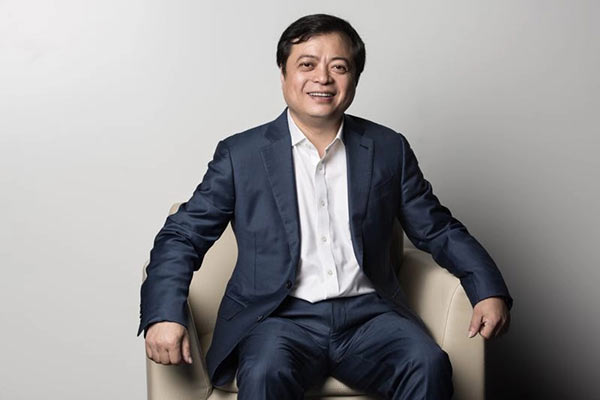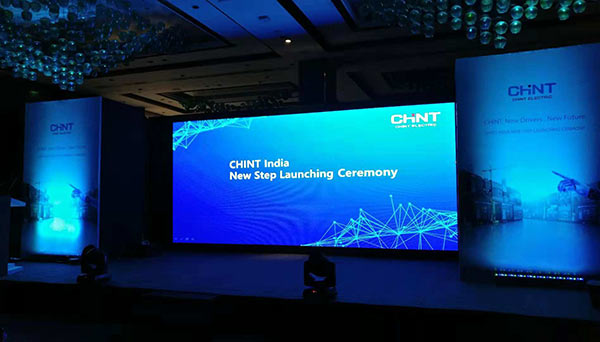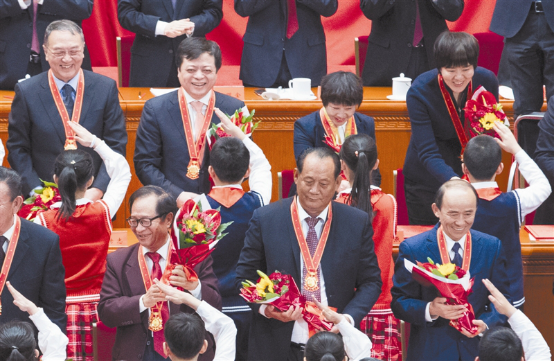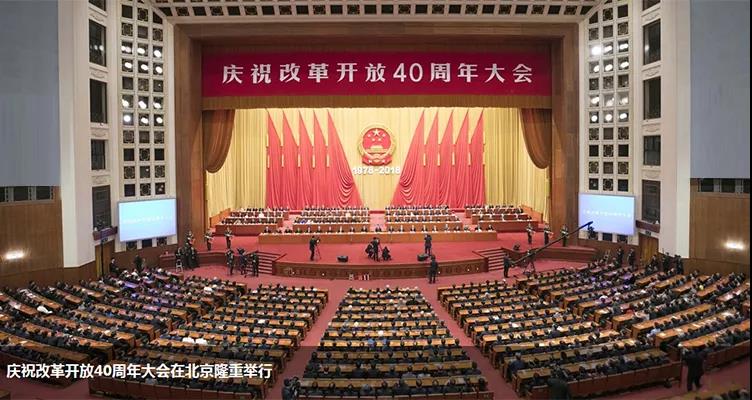
On Nov. 21, 2018, the State Council Information Office of China (SCIO) invited four private entrepreneurs to meet journalists and answer questions on “China's Reform and Opening-Up and the Development of Private Economy”. The entrepreneurs are Nan Cunhui, chairman and founder of CHINT Group, Zhou Haijiang, board chairman and CEO of Hodo Group, Liu Yonghao, chairman of leading agribusiness company New Hope Group, Lei Jun, founder and CEO of Chinese smartphone maker Xiaomi Corp.
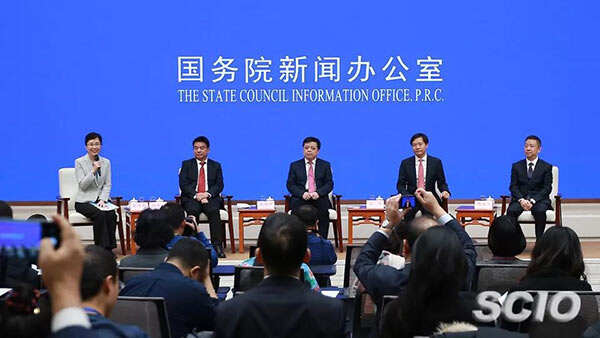
In the opening self-introduction, Nan said, “I am from Wenzhou, Zhejiang, the birthplace of China’s private economy. As a shoemaker who dropped out of school at 13 years old, starting from a rural township workshop to one of China's outstanding private enterprises, I have worked for 43 years and witnessed China's 40 years of Reform and Opening-up. Reform and Opening-up have made China's private economy, CHINT and my success. We are witnesses, participants and the biggest beneficiaries of Reform and Opening-up. I am grateful for this great era!”
Later, he and the other three entrepreneurs answered questions from Chinese and foreign journalists. The following is an excerpt of Nan Cunhui's remarks at the meeting.
CCTV
How to value the current effect of private economy in China’s economic development? What role will private economy play in the future?
Nan,
Playing an important role in China's economic and social development, private economy has brought a lot of job opportunities, improved national innovation capacity, helped to establish the market economy system as well as the modern enterprise management system. It has also promoted the progress of social contract spirit as well as rule and consciousness. Small in size but large in number, private enterprises can better solve the problem of employment while playing the role of social stabilizers. Also, the mechanism of private enterprises is flexible and responsive especially when facing fierce market competition. Private economy and private enterprises can be considered as "fresh force”. When innovation is becoming an important driving force for China's high-quality economic development, the private economy which contributes more than 70% to technological innovation, will surely continue to play an important role in the future.
AFP news agency
Recently, many people have been talking about the problem of "the state advances while the private retreats". In one hand, the President Xi Jinping has proposed that state-owned enterprises should be strong; in the other hand, the government is promoting the importance of private enterprises. What do you think of this problem?
Nan,
In undertaking major projects and maintaining overall stability and development, state-owned enterprises are the cornerstone of the real economy with large scale and strong strength. In addition, the return cycle on major projects investment is long. For example, China's high-speed railway construction projects require a return on investment of 30 to 40 years. This is why state-owned enterprises play an important role. Today, two high-speed railways in Zhejiang are made by private enterprises in PPP mode. Private enterprises should invest together with state-owned enterprises for common development.
The party and government have been constantly emphasizing and reiterating the “Two Unswervingly" policy: unswervingly consolidate and develop the public sector of the economy and unswervingly encourage, support and guide the development of the non-public sector of the economy. In 2003, President Xi, governor of Zhejiang province at that time, wrote a letter of congratulations to CHINT. CHINT actively responded to the call of provincial party committee to build an advanced international electrical appliance manufacturing base. In the letter, President Xi expressed that the private economy is Zhejiang's brand, the pioneer of Reform and Opening-up as well as the vitality of the province. The letter from president Xi has not only given us confidence in development but also encouraged us to seized market opportunities.
China National Radio
What experience worth sharing in the process of “Belt and Road” Initiative?
Nan,
In terms of actively responding to the “Belt and Road" initiative, CHINT has made a lot of explorations. Through investment in merger and acquisition, joint venture and factory construction, we have established factories and businesses layout in Germany, Thailand, Singapore, Malaysia, Vietnam and other countries. These factories have recruited a large number of local talents and realized the localization of employees. In the process of going out, CHINT has been through the process from globalization to localization. Our experience is to respect local laws and regulations, take root and integrate into the local community.
Following the “Belt and Road" Initiative, CHINT's high-voltage and low-voltage electric equipment and EPC services have been used in 80% of countries along the “Belt and Road" Initiative. As one of the representative photovoltaic power plants investment operators among domestic private enterprises, we have invested in and operated more than 200 photovoltaic power stations and nearly 100,000 household distributed photovoltaic power stations worldwide. While sharing the fruits of China's Reform and Opening-up, we are also demonstrating to the rest of the world the concept and practices of win-win cooperation and green and sustainable development of China's private enterprises.
The Times
What’s your opinion about the legal protection of private entrepreneurs?
Nan,
The legal system construction is the most concerned question in all walks of life, including the private entrepreneurs ourselves. With economic development and social progress, our national laws and regulations have been constantly improving. In the past, there were some imperfections and we had concerns and requirements on this subject. But the state and relevant departments have been actively and constantly promoting and improving them. At the symposium of private entrepreneurs held on November 1, President Xi Jinping once again stressed on the six measures to protect the personal and property safety of private entrepreneurs which reassured the private entrepreneurs. The state and relevant departments have actively promoted and made great progress in improving legal protection.
Wen Hui Newspaper
How to consider about the future prospect of private economy? What are the current difficulties? What are your expectations for the future, including policy?
Nan,
Indeed, the development of private economy faced some difficulties and problems in the past caused by multiple factors. However, challenges and opportunities always coexist, and you can have different thoughts from different perspectives. Difficulties in some traditional industries and fields may be opportunities in emerging industries and fields.
Some time ago, Zhejiang province faced difficulties due to high cost while getting loans. At that time, various departments of the State Council, Zhejiang Provincial Party Committee and Zhejiang government conducted intensive research and also issued a series of policies to solve the problem. Recently, the State Administration of Taxation issued 26 preferential policies to reduce costs and taxes to support the development of enterprises. The Banking Regulatory Commission, Development and Reform Commission, Ministry of Finance and other departments have also issued documents to ensure the smooth implementation of debt-for-equity swaps.
Both the state and local governments are supporting the private sector development. Citing the words from Mr. Che Jun, Secretary of Zhejiang Provincial Party Committee, we should make private entrepreneurs attractive and private economy strong. As long as we have confidence, there will always be more solutions than questions. Some so-called experts threw out "the theory of exit" that really confused the mind. We think this kind of expert is unrealistic, always living in the cloud. So we have to learn to examine and distinguish by ourselves.
Xi Jinping, General Secretary of the Communist Party of China (CPC), once again emphasized that the private sector would not "exit" but move to a broader stage. We believe that with the strong support of the government and all sectors of society, private enterprises will surely grow stronger. Thank you.
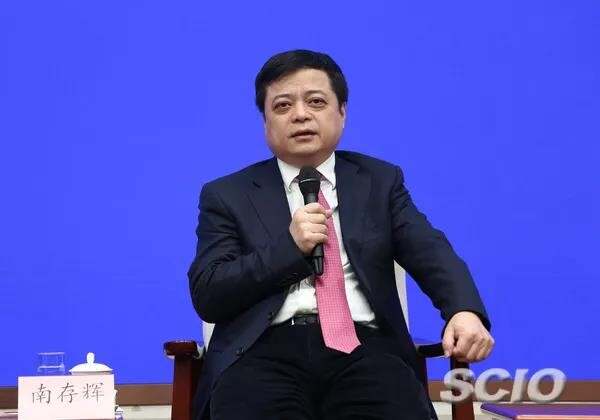
Nan,
I always say that we should follow our government, observe the world and invest ourselves into our own business. That means firstly we should listen and understand carefully what the government is talking about then acquire experience and learn lessons from excellent enterprises and multinational companies in developed countries of Europe and United States. Finally, based on national conditions, industry and business situation and the reality of our own enterprise, we should make our best to do our own jobs. We can extend this into "three beliefs”: believe the CPC central committee, believe the impact of the market mechanism and believe the power of China's excellent traditional culture. Thank you very much!

